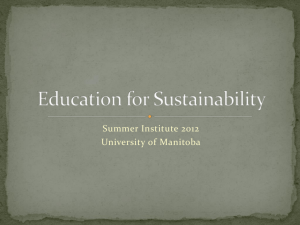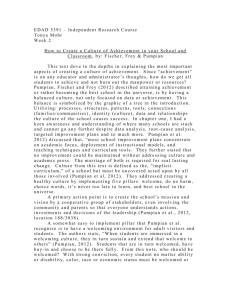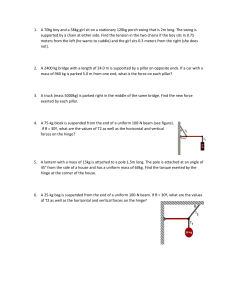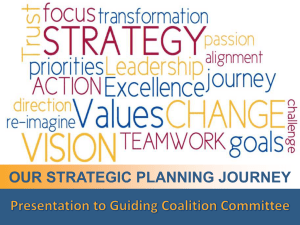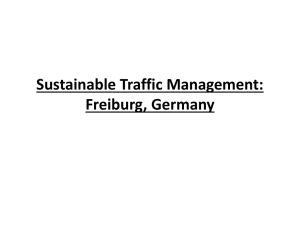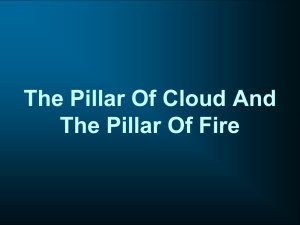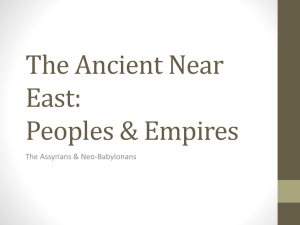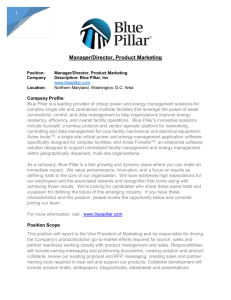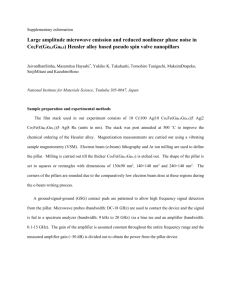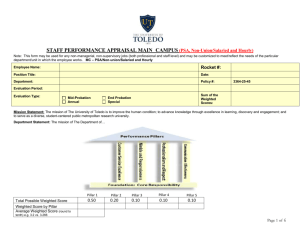ipc328
advertisement
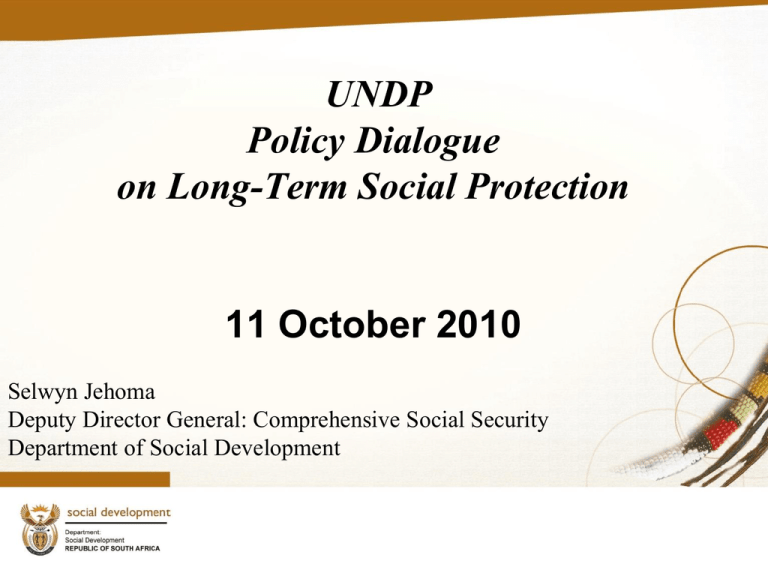
UNDP Policy Dialogue on Long-Term Social Protection 11 October 2010 Selwyn Jehoma Deputy Director General: Comprehensive Social Security Department of Social Development Background • The main forces - The inheritance of democratic government • South Africa chose a broad conceptualization of social protection that: 1. Incorporates developmental strategies and programmes; 2. Provides a coherent framework for integrating existing and proposed social and economic policy interventions. These wider functions and objectives of social protection are better able to address socially and economically embedded problems, new risks and increased vulnerabilities; 3. Creates added potential for integration and links income transfers and private, public and community sector interventions. SOCIAL PROTECTION FRAMEWORK Three Pillar Social Assistance Act, 2004 South Africa Social Security Agency Act Free Basic Services: Housing, Water, Electricity, sanitation, etc. National Health Act SA Schools Act Compensation for Occupational Injuries & Diseases Act, 1993 Medical Schemes Act, 1998 Pension Fund Act 1956 Road Accident Fund Act, 1996 Unemployment Insurance Fund Act, 2001 Medical Schemes Act, 1998 Constitution of the Republic of South Africa, 1996 The Social Protection Framework Application Key components Income poverty Universal/ eligibility criteria Child Capability poverty Universal/ Eligibility criteria Free Asset Poverty Universal/ Eligibility Access Special needs Eligibility criteria Reformed support grant (0-6 years) State Old Age grant Income support and Expanded Public Works and adequate publicly-provided healthcare Free primary and secondary education Free water and sanitation (lifeline Free electricity (lifeline Accessible and affordable public transport Access to affordable and adequate housing to productive and income generating assets such as land and credit Access to social assets such as community infrastructure disability grant Compensation for work related injuries Compensation for Road Accidents Defining social protection • World Bank: “Portfolio of strategies & arrangements ranging from risk reduction, avoidance or prevention” • ILO, DFID, others: as income transfers through social insurance, social assistance to protect employed citizens. • Definitions proposed are similar. • The traditional concepts of social protection do not always reflect the realities of the developing world. • Comprehensive social protection for South Africa seeks to provide the basic means for all people living in the country to effectively participate and advance in social and economic life, and in turn to contribute to social and economic development BASIC SERVICES • • • • • • • Inclusionary Housing Policy create housing opportunities for low cost housing. Free water supply is for those who cannot afford Free electricity Sanitation provided Healthcare Education Land (re)distribution SOCIAL ASSISTANCE SCHEME Social Assistance is provided in the form of – old age grant, – disability grant, – war veterans grant, – care dependency grant, – foster care grant, – child support grant, – grant-in-aid and social relief of distress SOCIAL INSURANCE SCHEMES • Social insurance is provided to protect employees and their dependents, through insurance, against contingencies which interrupt income. • These schemes are contributory for both employers and employees. • The contributions are wage-related and the employees and the employers are mandated by law/ bargaining council arrangements in terms of sector of employment • Social insurance covers contingencies such as pensions or provident funds, medical benefits, maternity benefits, illness, disability, unemployment, employment injury benefits, family benefits and survivor’s benefits. Strategic Challenges • • • • • Social Assistance Social Insurance Education Housing Water and Sanitation How are we planning to move towards a Comprehensive Social Security System? REFORM: SOCIAL SECURITY Partial Social Security Universal Social Security Pillar 1: - Universally available basic benefit for all citizens and specified classes of legal residents Pillar 2: – Contributory environment over-and-above pillar 1, characterized by strong mechanisms to ensure social solidarity: • Income and Risk-based cross-subsidies and Mandatory participation Pillar 3: – Discretionary social security over-and-above minimum levels regarded as essential Concluding remarks • South Africa’s social assistance programme has been expanding at an unprecedented rate, from covering just 2,7 million people in 1994 to over 12,5 million people today. • Its total expenditure makes up 3,4% of GDP and is the second biggest expenditure item of government’s budget • Much work remains to be done in respect of the second pillar to expand coverage for employment related social security, including retirement provisions, health insurance, unemployment insurance, etc. • Backlogs in basic services a moving target Thank You Merci Gracias Obrigado Asante sana
